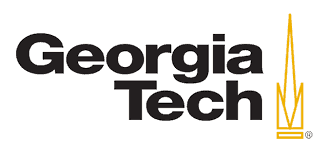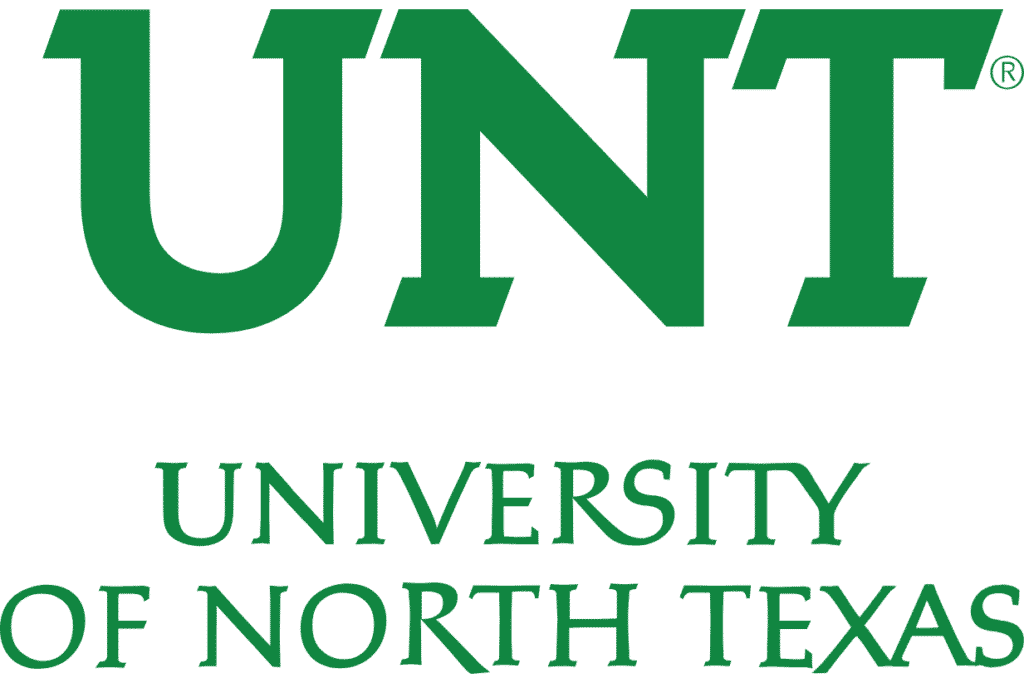What is Data Analytics?
IBM suggests the world generates a mind-boggling 2.5 quintillion bytes of data each day, each week, month, and year. That’s a lot of data to sort, analyze, understand, and use.
Enter data analytics. It’s about collecting raw data and processes and statistically analyzing large datasets into useful segments to address questions and propose solutions.
Data Engineers
Data Engineers are the beginning of the “data pipeline.” These engineers are similar to software engineers in that they gather data from numerous sources and make it usable to be analyzed. Data Engineers work with raw data to design, build, test, and manage the infrastructure that controls the data using programming concepts and algorithms. Without data engineering, data science and analytics would be difficult, if not impossible.
Understanding data allows organizations to understand past and future trends and behaviors. This is where analysts come in to decipher data and transcribe it into information that can be used in various areas, from healthcare to business to politics to industry and more.
Data are basically either qualitative or quantitative and classified into four categories:
- Nominal – variables without order (can act as continuous and discrete)
- Ordinal – has natural ordering based on a scale
- Discrete – is distinct and/or separate, only contains specific values
- Continuous – is in fractional numbers that can be divided into smaller sections
A Forbes article categorizes 13 types of data that moves beyond the “how” of data analysis to understand what it means, where it’s used, and when it’s necessary. The categories are:
| Big Data – huge information created by humans or machine-generated | Time Stamped Data – data captured at specific time or processed (collected) |
| Structured, Unstructured, Semi-Structured Data – predefined model or organized in a predefined manner | Spatiotemporal Data – describes time and location of the data |
| Machine Data – digital information created by a variety of unpredictable formats | Dark Data – unused available data |
| Open Data – available for anyone to use without restrictions | Genomics Data – specialized analysis of patient DNA |
| Operational Data – presenting big data as nontechnical information useful to leaders and staff | Translytic Data – real-time processing available on demand |
| Unverified Outdated Data – collected data but with relevancy or usefulness is undetermined |
What’s the Difference Between Analytics vs. Data Science?
The names Data Analytics and Data Science go hand in hand and are frequently used interchangeably. However, there are specific differences, but the two areas work together to provide useful information.
Data Science
Data Science is an area of study that combines computer programming, domain skills, artificial intelligence, mathematics, and statistics in order to understand massive amounts of data.
Amazon Web Services (AWS) emphasizes data science’s importance to support the ability of data science to use and develop new technologies to gather a massive amount of data from emails, texts, images, video, and audio. Data Science is the foundation of data mining from finance, healthcare, recreation, and all other possible sources.
Data Scientists consider what issues or questions the organization could ask of its data. These professionals then write algorithms, create predictive models, and run analyses. Using that information, data scientists will develop new technology to incorporate new trends to optimize that technology as needed.
Knowledge of Java, Python, machine learning, combined with data mining and analysis, as well as software are key for the data scientist.
Data Analytics
As described above, data analysts identify and answer questions about the data as requested. Data Analysts should be proficient in software programs like SQL, Python, Excel, etc. in order to statistically analyze, mine, and report.
Why Get Your Degree Online?
What better way to earn a master’s in data analytics than online?
You probably need to work. You could have family obligations. You’re trying to maintain a healthy work-life balance. Maybe you need a flexible schedule. The good news is, online degrees let you earn your degree on your terms.
Online courses and degrees are identical to what on-campus students study and are taught by the same faculty. Online programs are usually provided in accelerated, shorter terms allowing you to move through the curriculum quickly. The less time you spend in school, the more money you save on tuition costs, transportation and parking, meal plans, and housing.
An added benefit to pursuing your degree on your own schedule means your employer won’t see a disruption to your work. More employers are showing support for employees enrolling in online degrees and have incorporated educational assistance as a regular part of an employee’s benefits package, especially if the degree is related to your work.
What Will You Study?
As a general rule, MS degrees in data science or data analytics will be heavy in mathematics, statistics, computer science, and engineering. An MS in this field usually requires 30-36 credit hours that you typically can complete in 24 months or less and may include a practicum, Capstone Project, and/or final oral exams. Several programs have thesis or non-thesis options.
If you have a specific interest in data analytics, you can find programs that offer concentrations. Some specialties include healthcare data, management, business, data engineering and warehousing, geospatial analytics, artificial intelligence, data mining, and others.
Of course, the core curriculum will vary, but in general, sample core studies may include:
| Multivariate Analytics | Various Databases (T-SQL, PL/SQL, PostreSQL, Java, Python, etc.) |
| Data Mining & Visualization | Cloud Computing |
| Applied Statistics | Predictive Modeling |
| Programming | Machine Learning |
| Data Science Tools | Communications |
In addition to the required coursework, programs usually provide a full roster of elective courses in such topics as:
| Critical Thinking | Computational Data |
| Time Series Analysis | Demography |
| Deep Learning | Market Research |
| Statistics and Probabilities | Blockchain Technologies |
What Can You Do With an MS in Data Analytics?
Data Analytics is a field that offers careers in almost any area of 21st-century society. As mentioned earlier, the amount of data generated daily globally is an incomprehensible 2.5 quintillion bytes or a billion billions. This information must be developed, extracted, analyzed, understood, and used. Data analysis is used in virtually every aspect of our lives. Although not exhaustive, some areas of employment may be found in:
Companies that heavily rely on data to make operational decisions and supply chain, such as Amazon, FedEx, UPS, etc., are always hiring. Financial institutions, retail businesses, employment services, and communications companies (think cell phones, streaming services, computer companies, and more.)
Government agencies such as Homeland Security, U.S. Military, FBI/CIA, and others rely heavily on data analysis to track and investigate national security concerns. You’ll also find numerous jobs working with the Centers for Disease Control, Veterans Affairs, U.S. Federal Reserve System, etc. Local and state governments employ data analytics as well.
Healthcare systems find data analysis to be a critical component of providing safe healthcare decisions. The information analysis touches all aspects of healthcare, from patients, physicians, nurses, and technicians, to quality assurance, finance, marketing, food services, and more.
Science and Technology data scientists work in biology, chemistry, physics, and other investigative laboratories, gathering information to be analyzed. Every area of Industry, from food and nutrition to pharmaceutical, medicine, automotive, climatology, and more, relies on data scientists to provide workable data to advance studies and services.
Social Networking as we maneuver through Twitter, Facebook, TikTok, Google searches, and other websites, we’re providing usable data to be mined and analyzed. Jobs can be found analyzing personal data for companies and industries to target consumers in advertising and product placement.
Telecommunications use data analytics to analyze cell phone services, track usage through smartphones and GPS services, reduce drop call rates, and more. Corporations such as T-Mobile, Verizon, AT&T, and others use this information to improve services. Law enforcement and governments rely on this type of information.
Again, this list isn’t exhaustive but hopefully gives you an idea of the variety of positions for data analytics.
Data Analyst
Some of the largest areas of employment for a Data Analyst range from manufacturing, local, state, and federal governments, finance and insurance, corporate management, and scientific, technical, and professional services.
This career ranks in the top 10th in Best Business Jobs, 28th in Best 100 Jobs, and 14th in best STEM Jobs (U.S. News and World Report, 2023.)
Data Scientist
U.S. News and World Report surveys showed this career ranks #6 in Best Technology Jobs, #22 in 100 Best Jobs, and #11 in Best STEM Jobs.
According to the Bureau of Labor Statistics, due to the increased volume of data-driven information in various fields, this career has a reassuring 36% job growth expectation from 2021-2031. As more organizations gather more data, more data science professionals will be required to mine the information to be analyzed.
15% of Data Scientists work in the computer systems design field (BLS, 2023), with other employment found in management, scientific and tech consulting, scientific research and development, companies, and enterprises (BLS, 2023.)
While there may be some overlap between this field and Data Analysts, some distinctions may open jobs in other areas, but in general, the same organizations and businesses listed above for
Is Earning a Degree in Data Analytics Worth It?
If you want a career with a solid future, you’ll not find one with a more promising job outlook than this one. The Bureau of Labor Statistics (BLS) separates data analysis and data science careers in their projections.
Compensation for this profession is as solid as its job growth. What you can earn will depend, in great part, on where you work, live, and what your job requires. You can certainly find well-paying entry-level employment in this field with a bachelor’s degree; a master’s degree will position you for leadership and managerial positions.
As you consider your compensation in this field, you’ll want to factor in your employee benefits such as health insurance, paid time off, 401k, bonuses, educational benefits, and other allowances offered by your employer.
College Consensus relied on online services that provide salary information based on national employee surveys and compensation listings.
Data Scientist
| BLS | $100k-$103k |
| Salary | $51k-$63k |
| Zippia | $84k-$120k |
| ZipRecruiter | $75k-$145k |
| PayScale | $69k-$122k |
Data Analytics
| BLS | $80k-$121k |
| PayScale | $92k – $144k |
| Salary | $65k – $69k |
| Indeed | $73k-$112k |
Accreditation
It’s probably obvious, but any online program you choose should be accredited. Accreditation is the best way to guarantee that the graduate program satisfies specific standards for career professionals in Data Analytics. It also assures you that your program curriculum could lead to certification and licensure.
There are two types of accreditation: institutional or program. Data analytic programs can be accredited by a professional organization such as the Accreditation Board for Engineering and Technology (ABET) or the Data Science Council of America (DASCA).
Institutional accreditation is awarded to a college or university and is determined by a regional accrediting organization approved by the U.S. Department of Education. Accrediting surveys and visits examine a school’s programs and educational quality, faculty expertise, facilities, student services, etc.
Regional accreditation for institutions is conducted by designated non-profit agencies approved by the DOE or Council for Higher Education Accreditation (CHEA). You’ll see accreditation by agencies such as the Higher Learning Commission (HLC), Middle States Commission on Higher Education (MSCHE), Higher Learning Commission (HLC), and Southern Association of Colleges and Schools Commission on Colleges (SACSCOC). This is your guarantee the institution is qualified to award online degrees.
Deadlines
Let’s start at the end. It may seem obvious, but nothing can derail your graduate school goals faster than missing a deadline.
Admission deadlines can be twofold: institutional and program, and they aren’t necessarily the same. Frequently, being admitted to a specific program comes before the institutional deadline.
Before you apply for your online program, it’s a good idea to talk with the program director or faculty advisor. This will accomplish two things, help you make valuable contacts in the department and acquaint you with the application requirements and the all important deadline.
Other deadlines may be required for financial aid, transcripts, and letters, or when GRE/GMAT scores (if required) are due. Make sure you know when everything is due.
Admission
Schools and programs use online applications (typically with an application fee) and request support materials. You’ll probably need to provide academic transcripts, with a minimum GPA (typically a 2.5-3.0 minimum) in your undergraduate program, letters of recommendation and personal statement resume or curriculum vitae, and typically, the Free Application for Federal Student Aid (FAFSA®).
While you need an undergraduate degree from an accredited program for admission to a graduate program, but not necessarily in your prospective field. By the completion of prerequisite courses, you may still qualify for admission even with a bachelor’s degree in another area of study (you can add this to your conversation with the program director.)
It’s becoming common for colleges and universities to waive GRE/GMAT test scores, and while there is a trend to move away from these tests, some programs still require them. Your program director or admission office contact will let you know if you need to provide them.
Financial Assistance and Financial Aid
Don’t think you need to file the Free Application for Federal Student Aid (FAFSA®)? Don’t be so sure. It’s not unusual for a department to have graduate financial assistance available. You may be eligible to receive federal student loans as determined by the FAFSA® calculations.
Graduate programs often have graduate funding available through departmental scholarships or industry grants. To be sure funds are awarded to students with the greatest financial need, the committee administering the funds schools use the FAFSA® to determine eligibility. It’s worth talking with financial aid or admissions officers to determine what funds might be available.
Currently employed? You’ll want to talk with your supervisor or Human Resources Department representative to see if any educational assistance, tuition help, or tuition reimbursement is part of your employee benefits package and how to use it.
In a competitive environment, more companies support employees’ advancing their education as a factor in employee satisfaction and retention. Even if your employer doesn’t offer tuition help, you may find help with paying for books or fees.
If your employer doesn’t have an educational benefit in place, you could encourage them to divert some budgetary funds to help. It’s worth talking with the appropriate people in your business to explain the benefits of advancing your education through an online degree program. It can’t hurt to ask.
Professional Organizations, Certifications and Licensure
This profession has numerous organizations depending on your field of expertise. Whether your Data Analytics concentration is in healthcare, data mining, web development, machine learning, or other specialization, there’s probably going to be an organization for you. Here’s a sampling:
Digital Analytics Association (DAA) – Established in 2003, DAA advocates for professional development and provides survey information, job openings, community development, resources, mentoring, etc.
INFORMS – an international association INFORMS provides Operations Research, and Analytics professionals Certified Analytics Professional certification resources for government officials, educators, and organizations. Provides scholarships, prizes, and awards. Offers a career center, mentor program, continuing education opportunities, publications, and conferences.
Healthcare Data & Analytics Association – nonprofit organization that hosts annual conferences, networking opportunities, webinars, and more.
Certification
Data Analytics is part of the dynamic field of computer science and technology field that constantly changes. Certification will keep your skills sharp and current.
Here’s a small sampling of available certificates
- Certified Analytics Professional
- Google Data Analytics
- Wharton Business Analytics Program
- BrainStation Data Analytics
- Harvard University Business Analytics
Depending on where you work, you may also be asked to certify in a vendor-specific product.
Licensure
Data analytics doesn’t require licensure, and certifications aren’t always necessary unless your employer wants them. If so, there are a wealth of online certifications offered.
10 Best Online Master’s in Data Analytics
CSU Global

The online master’s programs at CSU Global rank among U.S. News and World Report’s Best in Computer Technology Programs. This MS in Data Analytics is a 36-credit hour degree and offers flexible scheduling with its 100%. Beyond the standard curriculum, you’ll take 12 hours from the impressive roster of accounting and information technology specializations. Once completed, you’ll be prepared to assume a leadership position in business using data analytics. If you’re not sure this is the best program for you, the school offers an online test drive of a sample course to help determine if this is your online program.
Georgia Tech

The Online Master’s in Analytics (OMS Analytics) program combines three colleges: Engineering, Scheller College of Business, and Computing from one of the country’s most respected schools. The 30-hour program offers courses 100% online and includes a practicum. There are three specialty tracks: Business Analytics, Computational Data Analytics, and Analytical Tools. Topics covered include data storage, machine learning/AI, business analytics/applications, etc. You can complete the degree in 24-72 months. No GRE/GMAT scores are required, and admission is in August and January. This program has a reasonable tuition that comes in under $10,000.
Oregon State University

This MS in Data Analytics degree from OSU combines studies in computer science, statistics, mathematics, policy, and applied sciences. OSU is on the quarter system, and this degree requires 45 quarter hours of study. This curriculum is designed by OSU faculty, and you’ll study various data analytics topics from the foundation, multivariate analytics, applied machine learning, and a capstone project. The degree is completed with an oral exam explaining your capstone project. Cohorts are admitted only in the fall quarter, and you don’t need GRE/GMAT scores for admission, but you do need a bachelor’s degree with a 3.0 GPA. Regardless of your residency status, current tuition is $560 per credit.
PennState World Campus

Since 1892, Penn State has provided quality distance education for students who never have to go to a physical campus. You have two options with PennState World Campus’ online MS in Professional Studies with concentrations in Data Analytics with an option in Business Analytics or Data Analytics with an option in Marketing Analytics. The program is ideal for research analysts, data scientists, data architects, and/or data engineers. On earning this degree, you’ll be able to design and maintain data analytics in data mining, business intelligence, data modeling, etc. This is a 30-credit-hour curriculum.
Robert Morris University

Considered one of U.S. News and World Report’s Best Value Schools and one of the Best Northeastern schools by The Princeton Review, Robert Morris University’s School of Informatics, Humanities and Social Sciences awards on online MS in Data Analytics. You can enroll in a three or 4-semester course plan that’s taught by the same faculty who teaches the on-campus courses. The program will improve your skills in system analysis and information systems.
University of Illinois Springfield

IU-Springfield’s Computer Science and Mathematics departments have joined forces in offering an online MS in Data Analytics. Applications are accepted in the spring and fall semesters for this graduate program. You may be able to transfer up to 8 graduate hours toward this 36-credit hour curriculum. To be considered for admission, you need to have completed courses in algorithms and data structures. You’ll be assigned an academic advisor when admitted to help you chart your courses.
University of Maryland Global Campus

If you apply for this online MS in Data Analytics by February 15, 2023, UMGC will waive your application fee. This is a 36-credit hour program that offers core courses in machine learning, decision management systems, and predictive modeling, as well as a capstone project. You can transfer up to 6 graduate hours toward this curriculum. UMGC used input from employers to design a curriculum to train leaders who can develop assets from institutional data. You’ll develop tools and evaluations, apply technology, meld business and tech into an analytical project.
University of Missouri

Mizzou’s hybrid MS in Data Science degree requires online courses and two required Columbia campus visits. This program, described by the school as, “The Way Beyond” allows you to customize this degree to suit your interests. You’re offered a choice in five areas of specialization: high-performance computing, strategic computing and data journalism, biohealth analysis, human centered science design, or geospatial analytics. The curriculum is designed to help you graduate in as little as two years. You’ll enhance your problem-solving skills and current analytic tools.
University of North Texas at Frisco

This online MS in Advanced Data Analytics at the Toulouse Graduate School is an accelerated program requiring 30 credit hours provided in 10 courses. Coursework combines case studies with theories and applications of big data analytics and statistical learning. Four concentrations are available in health data, statistics, management, or digital retailing. There are five program start dates per year with core classes in 8-week sessions in fall, winter, and spring. You can also opt to add an accelerated professional credential.
University of Wisconsin – Madison

The online MS in Engineering degree with a Data Analytics ((MEDA) concentration is part of the Interdisciplinary Professional Programs of this nationally ranked College of Engineering (Best Online Programs Grad Engineering 2022 of U.S. News and World Report.) Concentrations are available in sustainable systems, leadership, and manufacturing. This is a 30-credit-hour program that combines engineering applications with data science to prepare you for leadership positions improving the design, testing, products, and processes. The program has hard application deadlines on July 1, November 1, and May 1.
